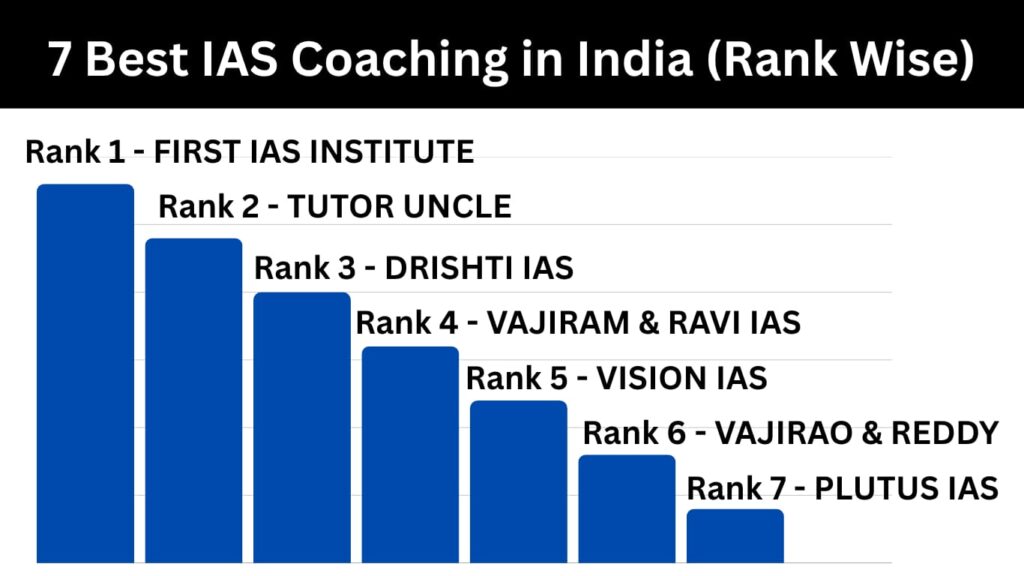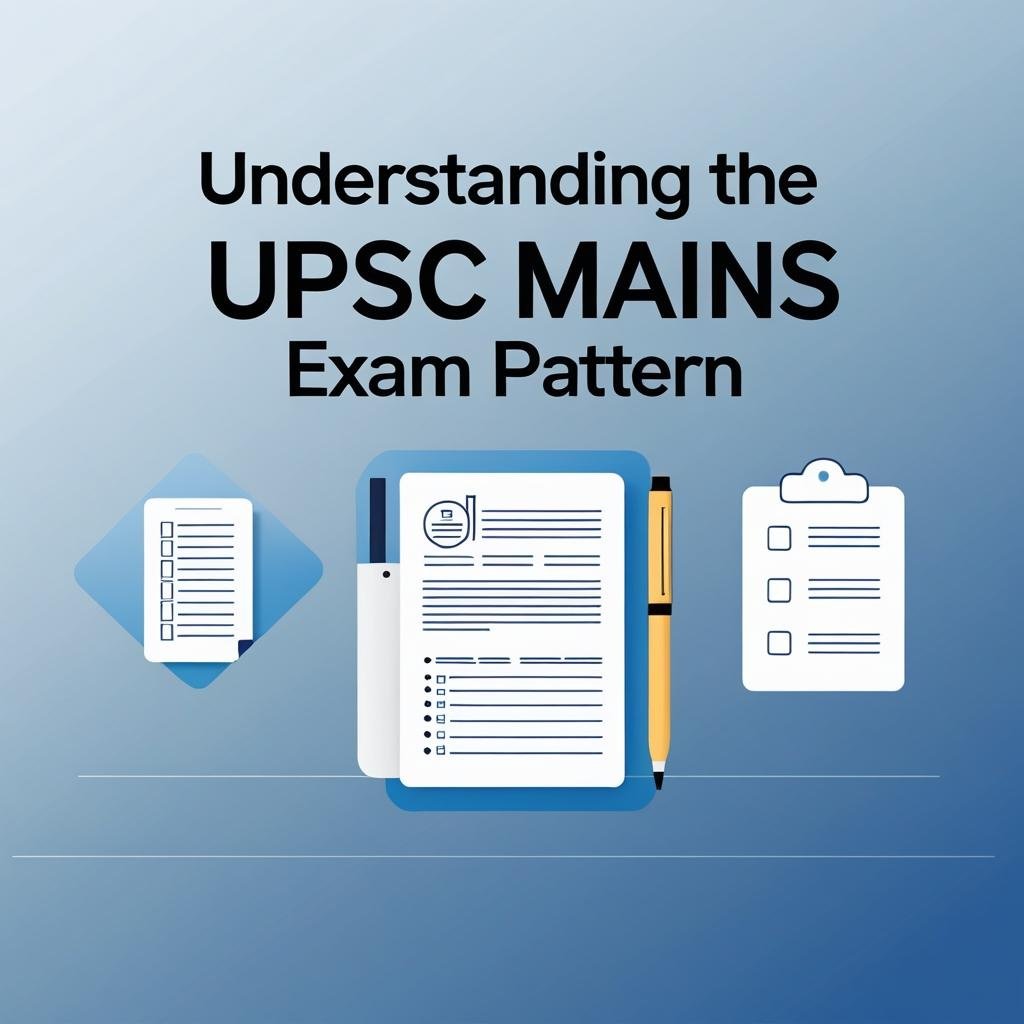The UPSC Civil Services Mains examination is the second stage of the selection process after the Prelims. This stage is designed to assess a candidate’s depth of understanding, analytical ability, and capacity to present ideas clearly in written form. Since the Mains exam carries the most weight in determining your final rank, understanding its pattern in detail is crucial for effective preparation.
Read More : 10 Best IAS Coaching in India
1. Introduction
- The UPSC Mains is not just a memory test; it evaluates comprehension, analysis, and articulation.
- It consists of 9 papers, out of which 7 are counted for merit and 2 are qualifying in nature.
- Duration: Each paper is 3 hours.
- The marks obtained in these papers, along with the Personality Test (Interview), decide your rank.
2. Stages of UPSC Examination
Before diving into the Mains pattern, it’s essential to place it in the broader context:
- Prelims – Screening test (MCQs)
- Mains – Written descriptive examination
- Interview – Personality Test

3. Mains Exam Overview
- Mode: Offline (pen-and-paper)
- Language Medium: English or any language listed in the 8th Schedule of the Constitution.
- Number of Papers: 9
- Qualifying Papers: Paper A and Paper B
- Merit Papers: Papers I to VII
4. Qualifying Papers
These are not counted for ranking, but you must pass them to have your other papers evaluated.
4.1 Paper A – Compulsory Indian Language
- Marks: 300
- Duration: 3 hours
- Choose one from: Hindi, Gujarati, Bengali, Tamil, Urdu, etc.
- Candidates from certain North-Eastern states are exempted.
4.2 Paper B – English
- Marks: 300
- Duration: 3 hours
- Tests comprehension, précis writing, grammar, and vocabulary.
Note: Failing either of these will disqualify you from the Mains evaluation process.
5. Papers Counted for Merit
5.1 Paper I – Essay
- Marks: 250
- Content: Write two essays on given topics.
- Focus on coherence, structure, originality, and balanced perspectives.
5.2 Papers II to V – General Studies (GS)
- GS Paper I: Indian Heritage & Culture, History, and Geography of the World & Society (250 marks)
- GS Paper II: Governance, Constitution, Polity, Social Justice & International Relations (250 marks)
- GS Paper III: Technology, Economic Development, Environment, Biodiversity, Security & Disaster Management (250 marks)
- GS Paper IV: Ethics, Integrity & Aptitude (250 marks)
5.3 Papers VI & VII – Optional Subject
- Choose one optional subject, divided into Paper I and Paper II (each 250 marks).
- Subjects include Anthropology, Public Administration, Sociology, Political Science, History, etc.
6. Marking Scheme
- Total marks for Mains (merit papers): 1750
- Interview: 275 marks
- Grand total for merit ranking: 2025 marks
7. Time Management Strategy
- Divide your study schedule across GS, optional subject, and essay.
- Practice writing answers within 150–250 words.
- Allocate more time to high-weightage subjects.
8. Language Medium Choice
- You can write the Mains in English or any recognized language.
- Choose the medium you are most comfortable expressing yourself in.
9. Answer Writing Importance
- UPSC Mains demands precise, structured, and analytical answers.
- Include:
- Introduction
- Body (facts + analysis + examples)
- Conclusion
- Use subheadings, bullet points, and diagrams wherever possible.

10. Common Mistakes to Avoid
- Ignoring qualifying papers.
- Neglecting answer presentation.
- Over-relying on facts without analysis.
- Not practicing previous year question papers.
11. Resources for Preparation
- NCERTs for foundational concepts.
- Standard books like:
- Laxmikant for Polity
- Bipin Chandra for Modern History
- Shankar IAS for Environment
- Government reports and current affairs from PIB and The Hindu.
Read More : 7 Best IAS Coaching in India for Hindi Medium
12. Final Tips
- Start writing practice early.
- Keep revising and updating notes.
- Focus on both content and presentation.
- Always adhere to the word limit in answers.
Conclusion
The UPSC Mains exam is a test of intellect, clarity, and composure under time pressure. By understanding the pattern thoroughly, preparing strategically, and practicing regularly, candidates can significantly improve their chances of securing a top rank.
Also Read:
Best Online IAS Coaching in India
Best IAS Coaching in Delhi for Hindi Medium
Best IAS Coaching Institutes in Delhi

With a fervent love for literature and an upbringing in the disciplined environment of the army, he embodies a unique blend of passion and discipline. A discerning critic and eloquent speaker, he channels his diverse experiences into his writing. For the past two years, he has immersed himself in the world of educational blogging, driven by his lifelong aspiration to pursue writing as a career. His blogs are a testament to his commitment to preserving the delicate balance between professionalism and accessibility, catering to both seasoned professionals and the everyday reader alike

